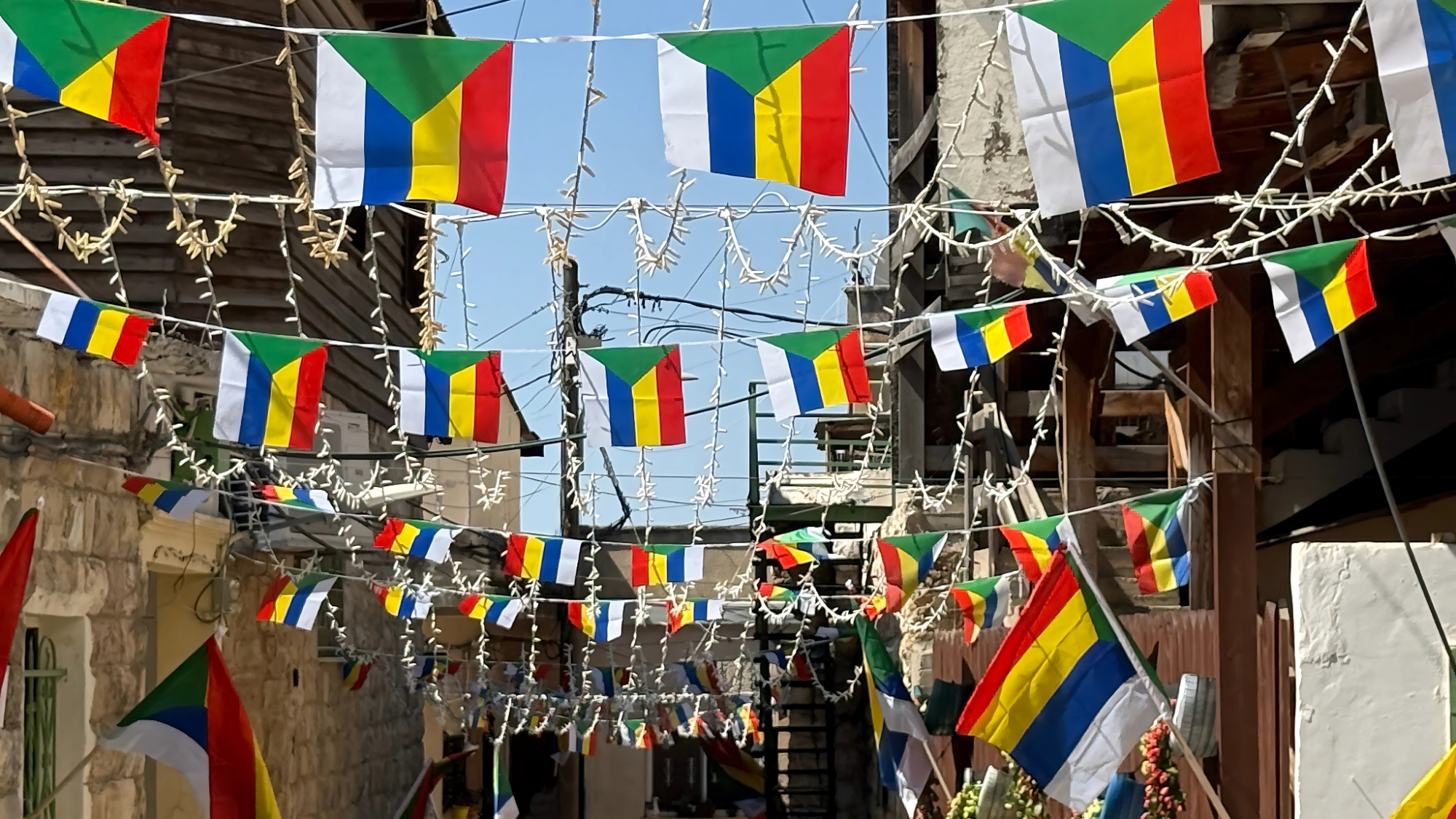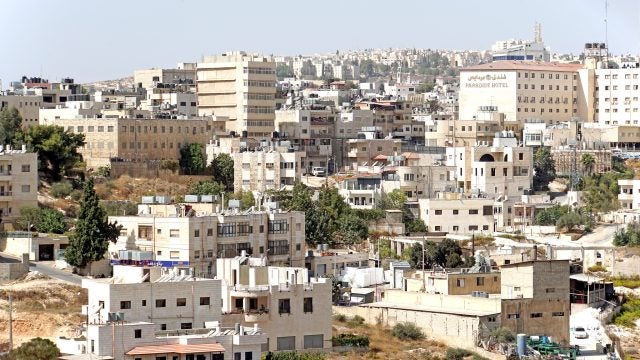
Title: The Druze Community in Israel: A Model of Minority Integration
The Druze community in Israel occupies a unique position as a minority group deeply integrated into national defense and political life. This article explores the historical and contemporary factors that have shaped Druze integration, particularly their longstanding alliance with the Israeli state and their mandatory military service. It explores how military participation has facilitated social mobility, political representation, and economic advancement for the Druze, distinguishing them from other Arab communities in Israel. By examining the Druze experience, this article offers policy recommendations for fostering minority inclusion worldwide.
Introduction
The Druze community, an ethnoreligious minority, holds a unique position in Israel and the broader Middle East. Despite numbering only around one million people worldwide, the Druze have maintained a substantial and influential status. In Israel, approximately 152 thousand Druze reside primarily in the Galilee, Carmel, and Golan Heights regions. Despite sharing linguistic and cultural ties with other Arab communities, the Druze have maintained a distinct identity.
Their historical alliance with the Jewish community dates back to the 1930s during the Palestine Mandate when they aligned with the Yishuv—the pre-state Jewish community in Palestine—in opposition to the Arab Revolt. During this period, Palestinian Arabs revolted against British colonial authorities and the Jewish population in response to increasing Jewish immigration. Growing Muslim hostility towards the Druze, including the assassination of prominent Druze figures advocating collaboration with Jews, further strengthened their ties with the Jewish community. This cooperation culminated in the 1948 Arab-Israeli War, when Druze volunteers fought alongside Jewish forces in the Israeli Defense Forces (IDF), leading to the formation of a dedicated Druze unit.
In 1956, an agreement between Druze leaders and the Israeli government made military service mandatory for Druze men, setting them apart from other Arab groups in Israel. This decision reflected a strategic alliance: Druze leadership sought greater integration and protection, while Israel aimed to bolster its national security with a loyal minority. Today, the Druze remain the only Arab group in Israel with compulsory military service, excluding those in the Golan Heights. This arrangement, along with their active sociopolitical engagement, provides a compelling case for examining minority integration within a predominantly Jewish state.
This article explores the historical background and evolving role of the Druze community in Israel, focusing on their military service and sociopolitical contributions. By analyzing how the Druze have navigated their integration within Israeli society, the article argues that their experience offers valuable insights into the potential of structured military inclusion as a means of fostering social mobility, political representation, and national cohesion for minority groups. Ultimately, the article proposes that these lessons can inform policies aimed at promoting more inclusive and cohesive societies globally.
The Druze in the Israeli Military
Military service has played a pivotal role in shaping the sociopolitical standing of the Druze community in Israel. With over 80 percent of Druze men enlisting in the IDF—one of the highest enlistment rates in the country—their participation has led to significant representation in leadership roles, including as generals and unit commanders. This integration within the military has also translated into political and civic representation, with Druze individuals holding positions in the Knesset, Israel’s parliament, and key governmental positions.
Druze soldiers have contributed to key military operations, often serving in sensitive areas such as Israel’s borders and complex sites like the Temple Mount in Jerusalem. Their native Arabic proficiency has been an asset in intelligence and security efforts, facilitating communication and de-escalation in critical situations. Beyond military service, Druze communities have actively supported national efforts, including volunteer initiatives aiding displaced civilians.
The Druze community played a significant role in Israel’s response to the Hamas attack on October 7, 2023. Among those who made a major contribution was the late Lt. Col. Salman Habaka, a tank commander recognized for his leadership during the defense of Kibbutz Be’eri. The ongoing war in Gaza has resulted in heavy losses for the Druze, reflecting the depth of their involvement in Israeli national defense.
This conflict has also influenced perspectives among Druze residents of the Golan Heights, a community that has historically maintained complex ties with Israel due to longstanding connections with Syria. However, recent geopolitical shifts—including conflicts in Gaza and Lebanon, the decline of the Assad regime, and Hezbollah attacks affecting Druze villages—have led to a growing number of Golan Druze applying for Israeli citizenship.
Military service, once controversial in this region, is increasingly seen as a path to integration, with a rising number of young Druze choosing to enlist in the IDF. Historically, the Golan Druze opposed serving in the IDF due to their strong ties to Syria and concerns over potential repercussions should Syria regain control of the region. However, with the Syrian Civil War diminishing hopes of reunification, the prospect of deeper integration into Israeli society has become more appealing than ever.
The effects of this shift are particularly evident among the next generation. Interviews with newly trained Druze soldiers from the Golan Heights suggest that military service is becoming more normalized within their communities. What began as an initiative by a few individuals is now laying the foundation for broader participation, reinforcing the Druze role in Israeli society.
Military service has also become an important vehicle for social mobility within the Druze community. The networks and skills gained during service can lead to job opportunities, particularly in government, security, and technology sectors where military experience is valued. In addition, the shared experience of military service fosters camaraderie and mutual trust between Druze and Jewish soldiers, helping to break down social barriers. Furthermore, military service grants access to state benefits, educational programs and scholarships, and career development initiatives that enhance long-term economic stability.
Policy Recommendations for Global Minority Integration
The experience of the Israeli Druze offers valuable insights into how military service can serve as a powerful tool for minority integration, particularly in regions facing ongoing conflict and security threats. A key takeaway is that structured inclusion in national defense institutions fosters both loyalty and social cohesion. In volatile geopolitical landscapes, integrating minority communities into the military not only strengthens their ties to the state but also ensures they have a direct stake in national security. The Druze case demonstrates how active participation in national defense can help transform a historically marginalized group into an essential component of the state, reinforcing their status as full-fledged citizens rather than outsiders.
More broadly, minority participation in defense can be a stabilizing force in societies grappling with sectarian tensions and external threats. In modern conflicts, especially those involving non-state actors and asymmetric warfare, national unity is a critical asset. When minority groups see themselves as integral to national security, they are more likely to resist radicalization and align with state interests rather than external influences.
Beyond national defense, military service often serves as a pathway to social and economic integration. For the Druze, enlistment has opened doors to employment opportunities, career networks, and leadership positions that might otherwise have been difficult to access. Historically, military networks have functioned as a key driver of upward mobility, particularly in societies where discrimination or systemic barriers limit economic advancement.
However, as the Druze experience highlights, military service alone is not enough. Governments must also implement broader economic policies to ensure long-term stability for minority veterans. Without structured post-service employment programs, educational opportunities, and veteran support initiatives, minority soldiers may find themselves marginalized once their service ends. In conflict-prone regions, ensuring smooth reintegration into civilian life prevents disenfranchisement and promotes sustained loyalty to the state.
For governments navigating internal divisions, minority inclusion in the military is not just a matter of equality but also a strategic consideration. Offering these communities meaningful roles in national defense strengthens internal cohesion, reduces the risk of alienation, and fosters a shared national identity. In Israel, the Druze have become an indispensable part of the IDF, illustrating how minority participation in security institutions can contribute to broader societal stability. Recognizing military service as both a path to social mobility and a means of inclusion enables policymakers to develop frameworks that support historically marginalized communities, allowing them to play a more active role in national defense and societal cohesion.
…
Dr. Eve Afifa Kheir, the world’s first international Druze linguist, is a social scientist, linguist, radio host, and university lecturer. Her research and publications span social sciences, minority studies, global affairs, mental health, and linguistics, contributing to both academic scholarship and public discourse.
Image Credit: Roded Shlomo Pikiwiki Israel, CC BY 2.5, via Wikimedia Commons.
Recommended Articles

Critical maritime infrastructures (CMI), and in particular undersea communication cables, are increasingly under threat of attacks by malign actors who benefit from asymmetric capabilities and jurisdictional complexities in the maritime…

This article explores how the Palestinian crisis and the death of the two-state solution endangers the Hashemite Kingdom of Jordan. It illuminates the complicated relationship between Jordan, Israel, and Palestine…

This article explores the uncertain future of Arctic governance amid shifting global geopolitics. It argues that whether Washington and Moscow opt for confrontation or cooperation, multilateralism in the Arctic…